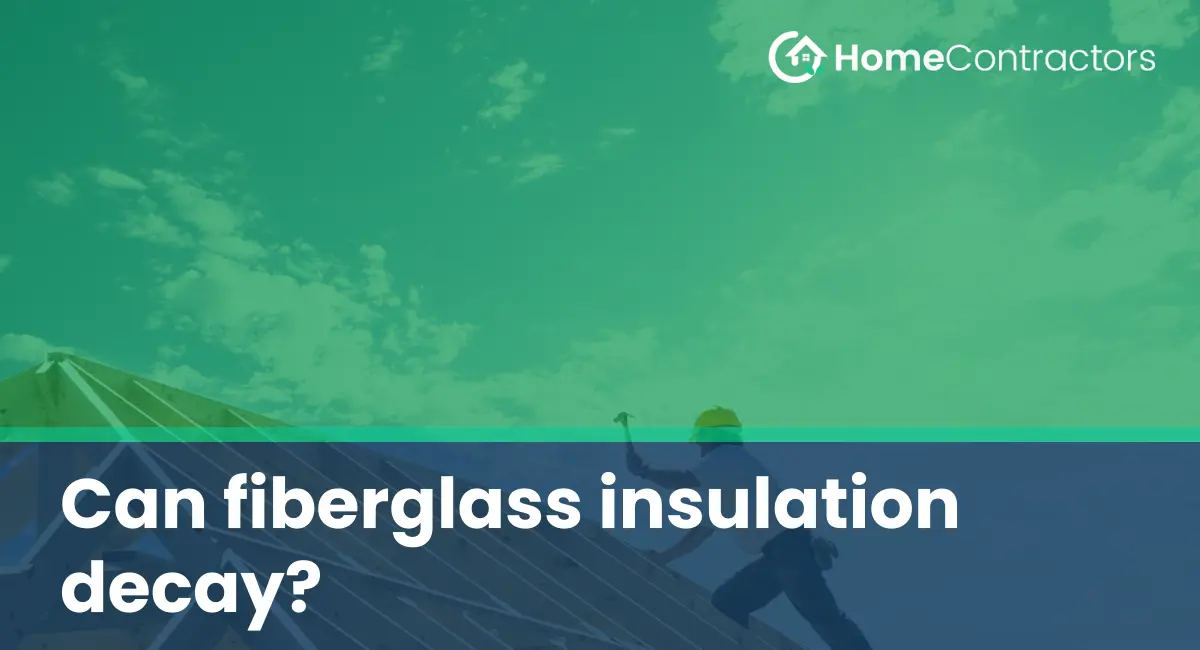Exploring the Lifespan of a Common Insulation Material
When it comes to insulating our homes, fiberglass insulation is a popular choice due to its affordability, effectiveness, and ease of installation. However, over time, homeowners may wonder if this insulation material can decay or lose its effectiveness. In this article, we will explore the lifespan of fiberglass insulation and address common questions regarding its potential decay.
Understanding Fiberglass Insulation
Fiberglass insulation is made by weaving together thin strands of glass into a fluffy batt or blowing it in as loose-fill. It is widely used in residential and commercial construction to provide thermal and acoustic insulation. Fiberglass insulation works by trapping pockets of air, which reduces heat transfer through walls, roofs, and floors, keeping indoor spaces warm in winter and cool in summer.
Factors Affecting Fiberglass Insulation Lifespan
Like any material, fiberglass insulation is subject to certain conditions and factors that can affect its lifespan and performance over time. Let’s take a closer look at these factors:
1. Moisture
Moisture is one of the main culprits when it comes to potential decay of fiberglass insulation. If moisture infiltrates the insulation, it can diminish its effectiveness and promote mold and mildew growth. Moisture can seep in through leaks in the roof, condensation in the attic, or high humidity levels. To prevent this, proper insulation installation techniques and maintenance should be followed.
2. Pests
Another potential threat to fiberglass insulation decay is pests. Rodents, insects, and other small animals can find their way into your home and make nests in the insulation. They damage the insulation by tearing it apart, soiling it, or using it as nesting material. Regular pest control measures and sealing any potential entry points will help preserve the integrity of the insulation.
3. Physical Damage
Fiberglass insulation can also be affected by physical damage over time. Accidental punctures or compression from storage items can compress the insulation or create gaps, reducing its effectiveness. Proper handling and care during installation and maintenance are crucial to avoid damaging the insulation.
The Lifespan of Fiberglass Insulation
Although fiberglass insulation does not decay like organic materials, its performance can deteriorate over time if subjected to the above-mentioned factors.
1. Lifespan
Fiberglass insulation, when properly installed and maintained, can last for several decades. On average, its lifespan is estimated to be around 25 to 40 years, depending on various factors such as climate, house construction, and maintenance.
2. Maintenance
Regular inspection and maintenance of fiberglass insulation are essential to maximize its lifespan. Inspecting for signs of moisture, pest infestation, or physical damage should be part of your routine home maintenance. Repairing or replacing damaged or compromised insulation promptly can help prevent further decay and ensure optimal insulation performance.
While fiberglass insulation itself does not decay, its effectiveness can be compromised over time due to factors such as moisture, pests, and physical damage. By understanding these factors and implementing proper installation techniques and maintenance practices, homeowners can ensure that their fiberglass insulation remains in good condition for many years. Regular inspections, prompt repairs, and professional assistance when needed are key to preserving the insulating power of fiberglass insulation and keeping our homes energy-efficient and comfortable.
